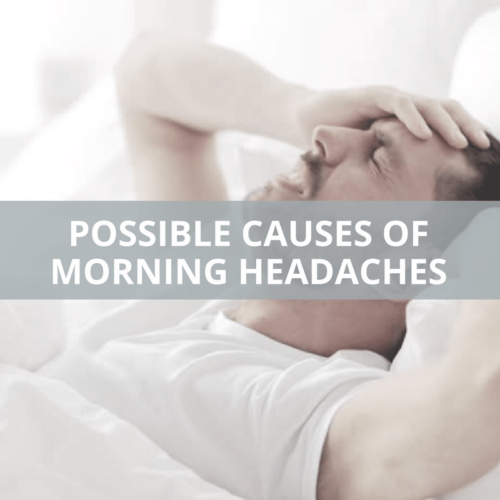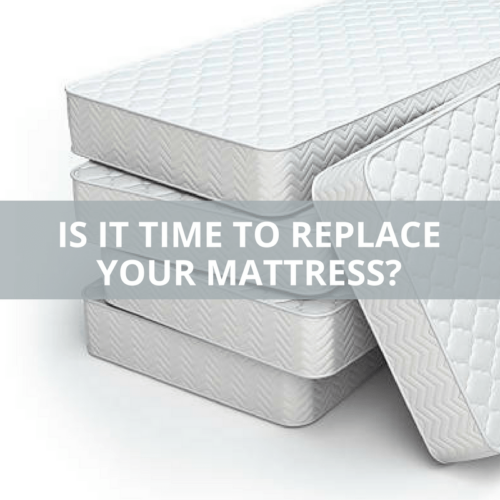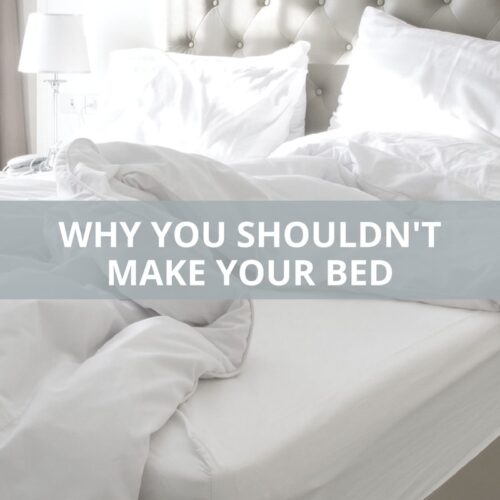
Why do I wake up with headaches?
If you wake up most mornings with a throbbing headache, it might be related to either your sleep patterns or sleep environment. Headaches are the
Please make sure to check stock availability & lead times with our sales department.

Are you waking up in the morning feeling groggy, low on energy, or sore, even though you had your recommended 8 hours of sleep? If so, your mattress could be the silent enemy preventing you from getting the quality sleep you need.
In this blog post, we’ll be looking at some of the obvious and not-so-obvious signs that it might be time to make the responsible decision and replace your mattress.
Generally we, the bedding experts, recommend that all mattresses should be replaced at least every 8-10 years, depending on how well you looked after your mattress. If you do not rotate or flip your mattress as instructed, allow your kids to use it as a trampoline, or skip keeping your mattress clean, the lifespan could even be less than the normal 8-10 years.
As the mattress age, the support construction breaks down and loses its initial support. When this happens, your mattress tends to sag, usually in the middle and if it is a spring mattress, you could even have springs poking you while you sleep. Foam layers also compress over time, leaving permanent impressions, lumps, and bumps, further adding to the lack of support and comfort.
So, purely assessing your mattress on a visual level, will give you a good indication if it is, in fact, time to replace your mattress.
 Did you know that studies have shown that a mattress could increase in weight by a few kgs in as little as 8 years? How is this possible you might ask? Well, when we sleep we sweat and shed dead skin cells, which get absorbed by our mattress. Living in our mattresses are little microscopic critters, known as dust mites, which feed off the dead skin cells and multiply at an alarming rate. In addition to the bodily fluids, dead skin cells, and dust mites, our mattresses could also be a host to bacteria, mold, and dust.
Did you know that studies have shown that a mattress could increase in weight by a few kgs in as little as 8 years? How is this possible you might ask? Well, when we sleep we sweat and shed dead skin cells, which get absorbed by our mattress. Living in our mattresses are little microscopic critters, known as dust mites, which feed off the dead skin cells and multiply at an alarming rate. In addition to the bodily fluids, dead skin cells, and dust mites, our mattresses could also be a host to bacteria, mold, and dust.If you suffer from breathing problems, itchy rashes, sneezing and other general allergy symptoms, it could be as a result of the dust mites that live in your mattress. As they feed, they produce feces, which is the actual cause of allergy symptoms experienced by many of us – especially if it gets worse at night when you go to bed.
 To minimize the allergy symptoms and keep your mattress more hygienic for a little bit longer, I would highly recommend investing in a waterproof mattress protector. A mattress protector basically looks just like a fitted sheet that fits over your mattress and minimizes the number of dead skin cells and other elements from being absorbed by your mattress. This, in turn, causes not-so-favorable living conditions for your little friends, meaning that their breeding and feeding will be kept to a minimum.
To minimize the allergy symptoms and keep your mattress more hygienic for a little bit longer, I would highly recommend investing in a waterproof mattress protector. A mattress protector basically looks just like a fitted sheet that fits over your mattress and minimizes the number of dead skin cells and other elements from being absorbed by your mattress. This, in turn, causes not-so-favorable living conditions for your little friends, meaning that their breeding and feeding will be kept to a minimum.
It is recommended to also wash your sheets and pillowcases every week, but let’s face it, with our hectic lifestyles this is a bit of a stretch. So at least try to wash them every 2 weeks. And then, of course, you need to keep your mattress clean and spring clean your mattress about twice a year – for more info on this, you can pop on over to our post ‘How to keep your mattress clean‘.
All the tips above could extend the lifespan of your mattress for a couple of years maybe, but you need to keep in mind, even if you can’t see any visible signs of aging in your mattress, the inside could be a hygienic disaster zone.

Now that we have covered the ins and outs of the mattress, it is time to assess yourself. If you wake up in the morning with any aches or stiff muscles that seem to disappear throughout the day, it could be due to the lack of support and comfort as discussed above.
When we sleep, our spine and neck need to be aligned correctly. If you sleep on an old mattress that does not offer the same level of support as it initially did, your spine and neck are forced into an unnatural position. Pressure po
ints could also develop in areas such as our shoulders and hips when the comfort layers have deteriorated and do not offer the same conforming comfort as they did in the beginning.
Therefore, backaches, stiff muscles, neck pain, shoulder pain, etc. that seem to disappear during the day, are another sure sign that it is time to invest in a new mattress. Another telltale sign that your mattress is causing your discomfort is if you maybe sleepover at a friend’s place or even in a hotel or guest lodge, and you wake up feeling refreshed, without any body aches and pains.
 If waking up with a sore back or neck is not enough, you could also be waking up just feeling plain tired and groggy, even after getting the desired 8 hours of sleep. Going to bed early is all good and well, but if it takes you more than an hour to fall asleep and stay asleep throughout the night, it could be that your old mattress is ruining your sleep as well as your day and general performance in the workplace.
If waking up with a sore back or neck is not enough, you could also be waking up just feeling plain tired and groggy, even after getting the desired 8 hours of sleep. Going to bed early is all good and well, but if it takes you more than an hour to fall asleep and stay asleep throughout the night, it could be that your old mattress is ruining your sleep as well as your day and general performance in the workplace.
Sleep deprivation has so many negative effects on your body as well as on your mind and sleeping on an old, lumpy, dust-mite-infested mattress could lead to a serious lack of sleep. This, in turn, could lead to memory problems, general awareness issues, lack of creativity, higher blood pressure, weight gain, and even cause depression.
We spend about a third of our life in bed and by investing in a new mattress when needed, you will not only be investing in a good night’s rest but also in our general health and well-being. We cannot stress the fact enough how important quality sleep is to your general health and well-being and strongly advise replacing your mattress if you can relate to any of the topics discussed in this blog post.
Buying a new mattress or bed set could be expensive and it might seem like quite a daunting task to decide which of the many options available would be the best fit for you. At Beds Online we have a team of expert sales consultants ready to assist and advise in any way possible.

If you wake up most mornings with a throbbing headache, it might be related to either your sleep patterns or sleep environment. Headaches are the

Growing up, I had to make my bed before school and hated it. I couldn’t see the point of it either and always had some
We’ll keep you updated with new products, bed giveaways and every sale!













This website uses cookies so that we can provide you with the best user experience possible. Cookie information is stored in your browser and performs functions such as recognising you when you return to our website and helping our team to understand which sections of the website you find most interesting and useful.
Strictly Necessary Cookie should be enabled at all times so that we can save your preferences for cookie settings.
If you disable this cookie, we will not be able to save your preferences. This means that every time you visit this website you will need to enable or disable cookies again.